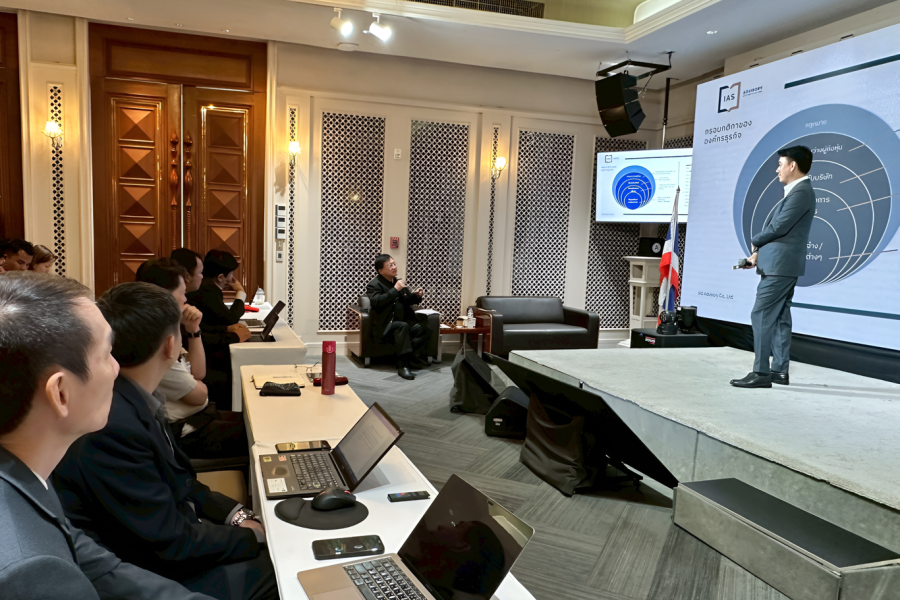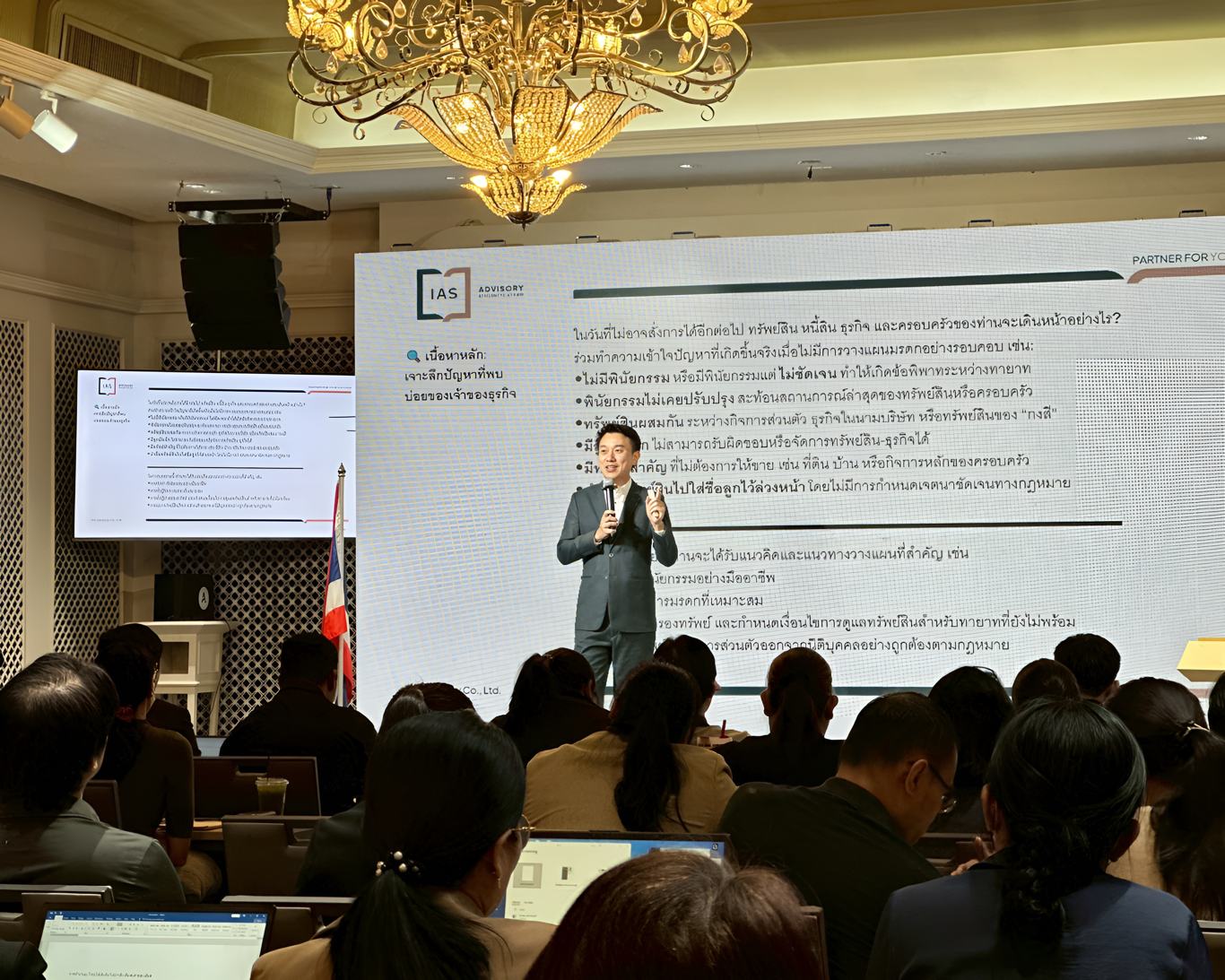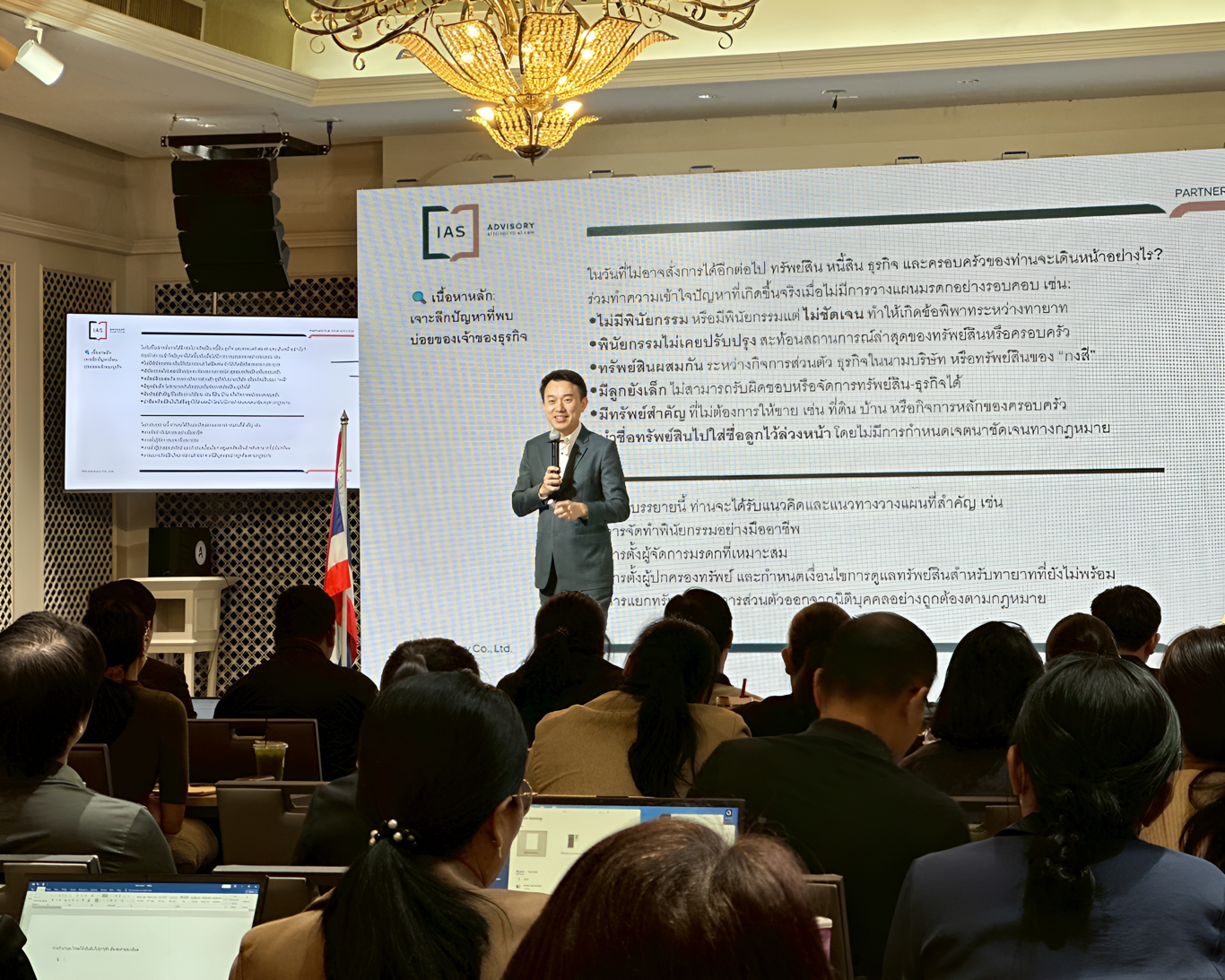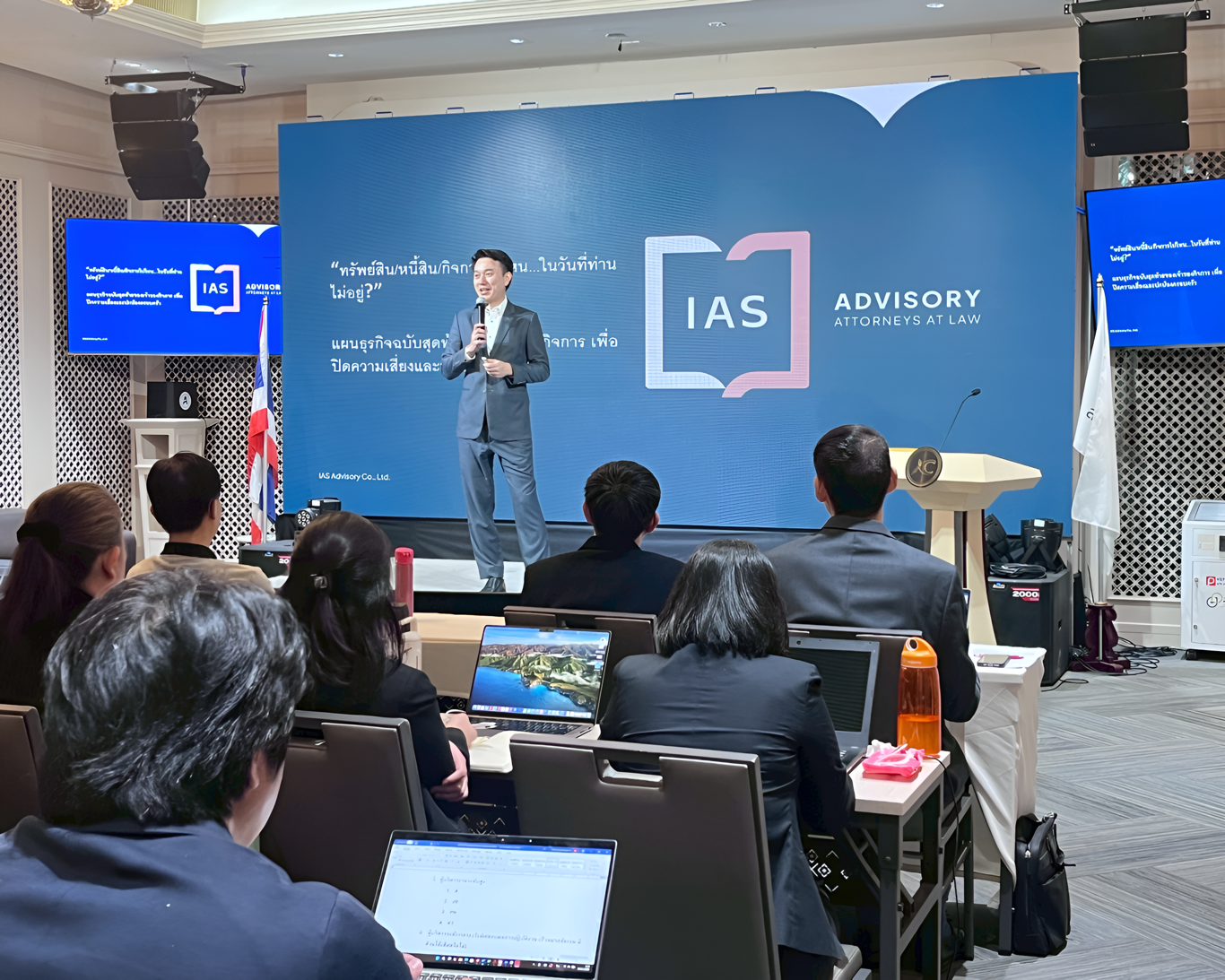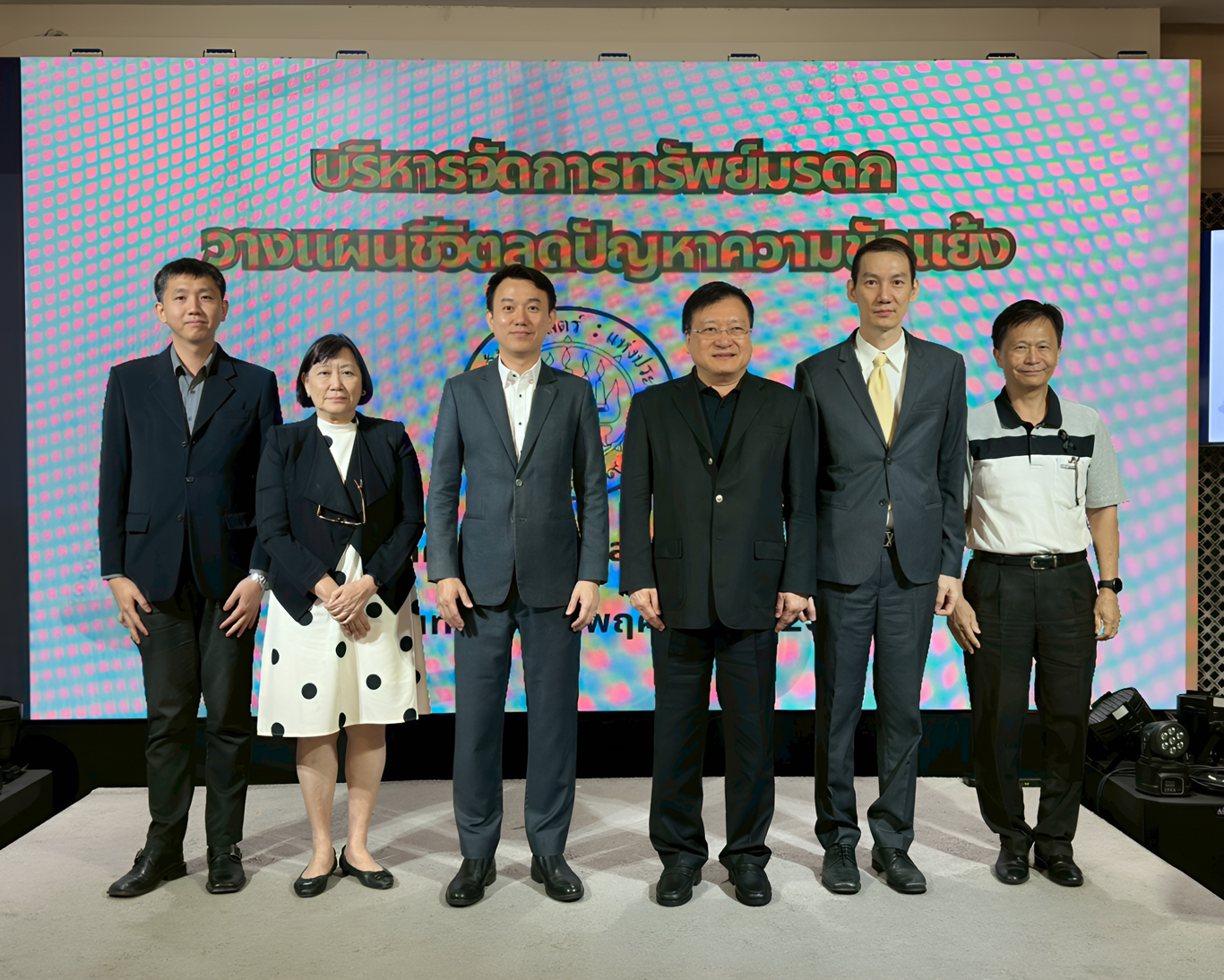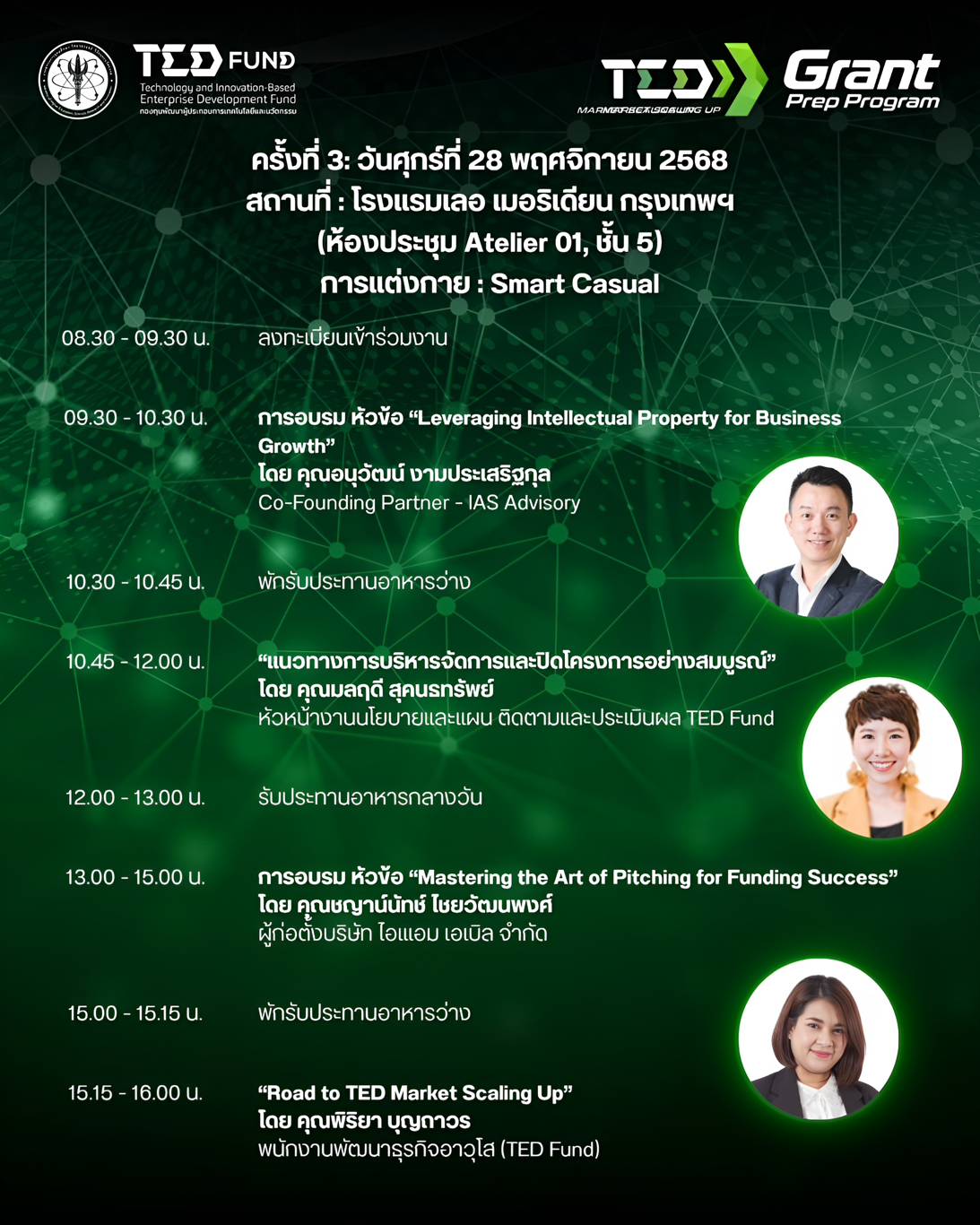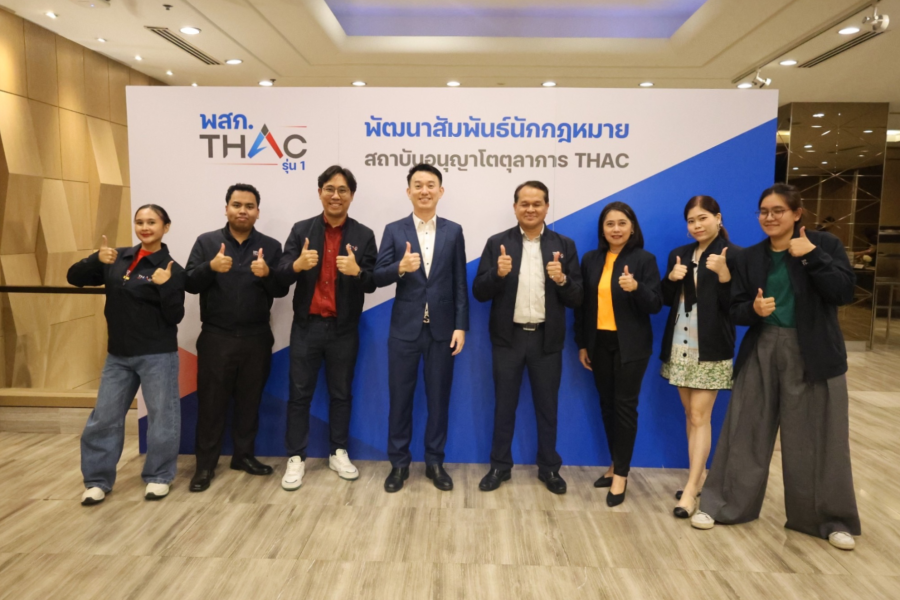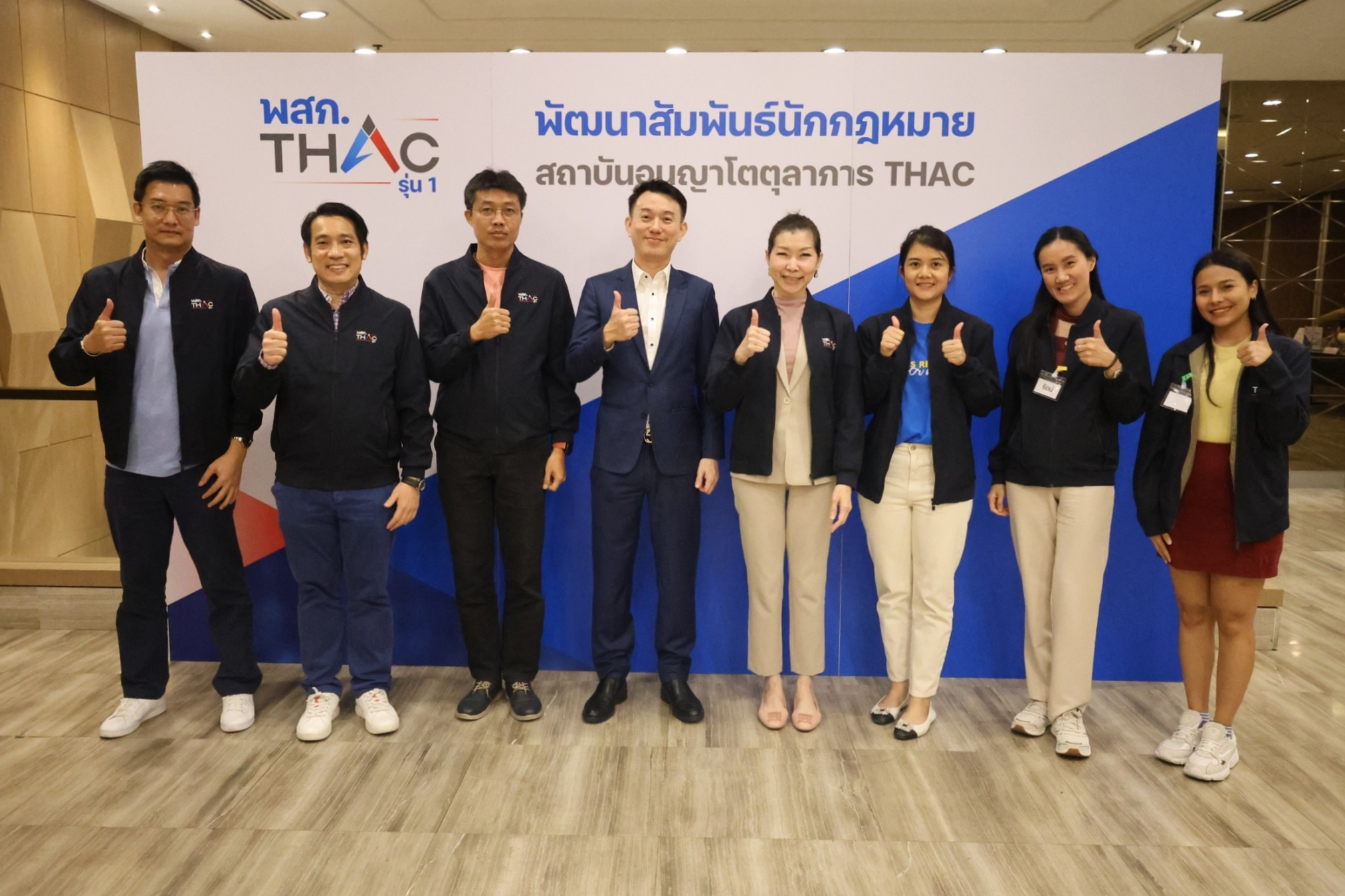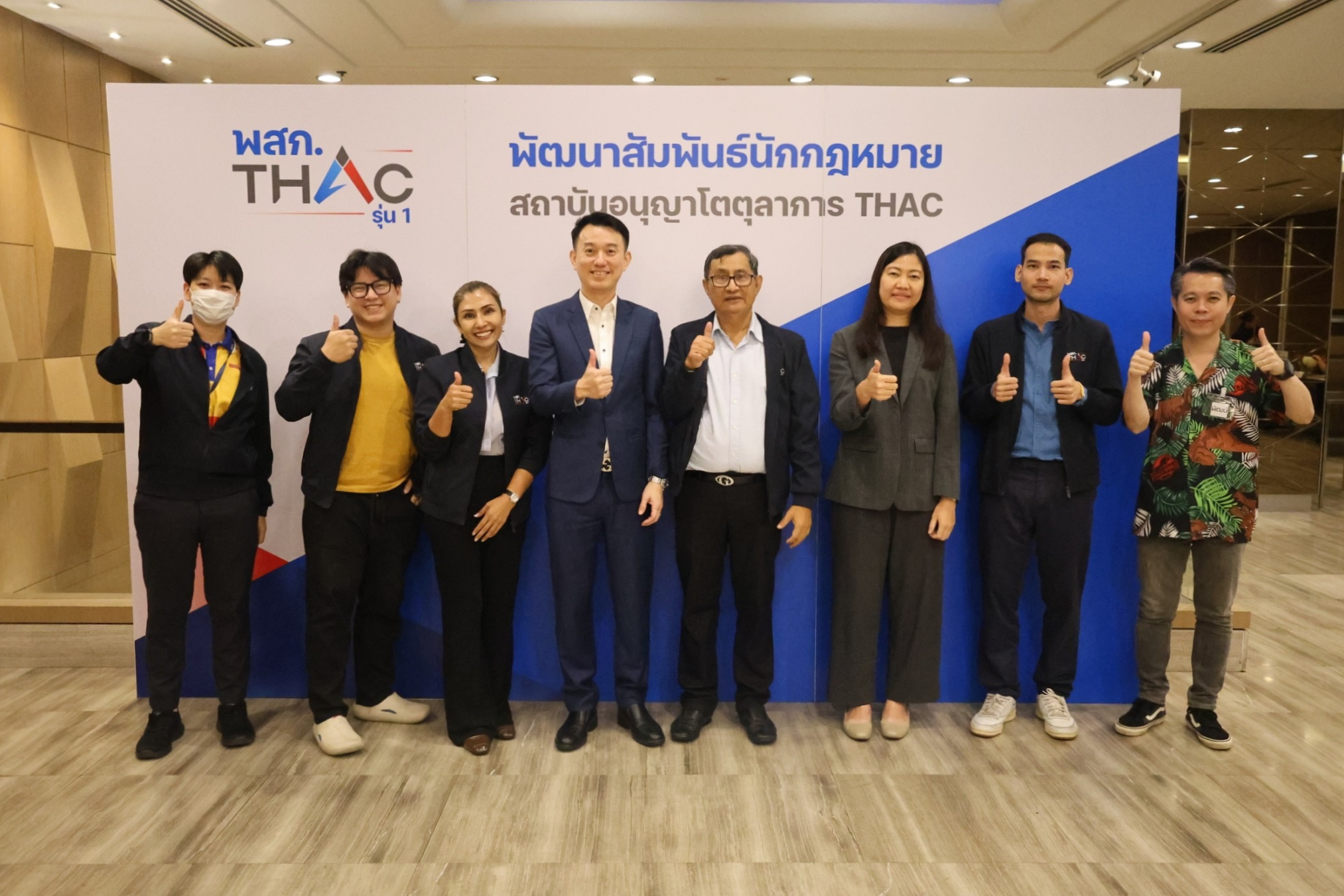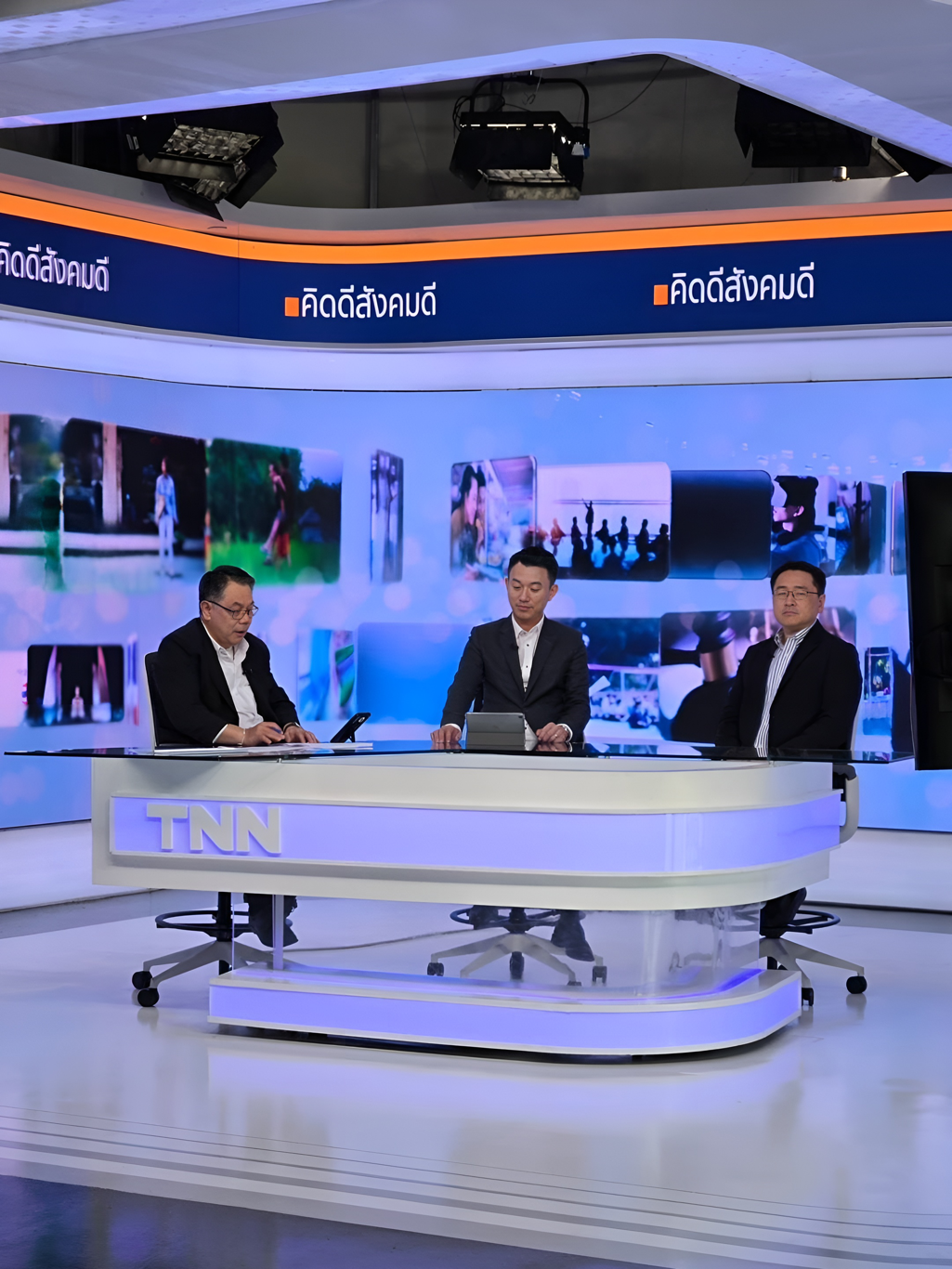For entrepreneurs seeking to establish a new enterprise, forming a strategic partnership can facilitate accelerated growth by boosting capital and sharing ownership and management responsibilities. Yet, frequent news reports of conflicts between investors and management have raised questions about whether such partnerships represent value or a potential source of problems.
Before deciding to enter a partnership, it is essential to understand the legal requirements. So, what are the main factors to consider when agreeing to collaborate? What legal principles must be addressed in forming and maintaining strong business alliances? What legal considerations are key to successful and compliant business partnerships? How do you resolve shareholder disputes and what can you do to prevent them?
Join the discussion with IAS Advisory co-founder Mr Anuwat Ngamprasertkul in a podcast episode of the programme Home Economy, hosted by veteran news anchor, reporter and journalist Dr Wit Sittivaekin.
This podcast aired on 25th November 2025 on Thai PBS, Thailand’s public broadcasting service. Disclaimer: all content is owned by Thai PBS. Visit the Thai PBS website HERE.



